Life
Sign up for our newsletter
We summarize the week's scientific breakthroughs every Thursday.
-
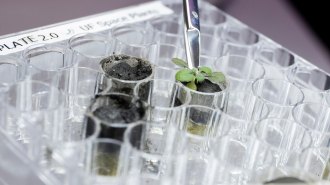 Plants
PlantsThese are the first plants grown in moon dirt
The first attempt to grow plants in Apollo samples from the moon shows the promise and potential struggles of farming in lunar soil.
-
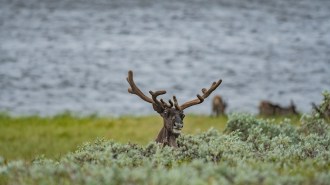 Life
LifeCaribou gut parasites indirectly create a greener tundra
Caribou merely sickened by parasites eat less vegetation, allowing plants to flourish.
By Jake Buehler -
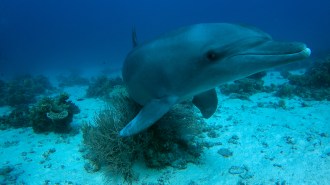 Animals
AnimalsThese dolphins may turn to corals for skin care
For Indo-Pacific bottlenosed dolphins, rubbing against corals and sea sponges that contain antibacterial compounds could help keep skin healthy.
-
 Science & Society
Science & SocietyCOVID-19 has killed a million Americans. Our minds can’t comprehend that number
We intuitively compare large, approximate quantities but cannot grasp such a big, abstract number as a million U.S. COVID-19 deaths.
By Sujata Gupta -
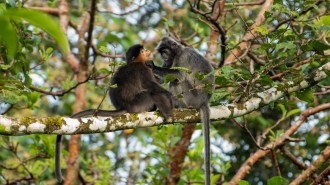 Animals
AnimalsA ‘mystery monkey’ in Borneo may be a rare hybrid. That has scientists worried
Severe habitat fragmentation caused by expanding palm oil plantations may have driven two primate species to mate that wouldn’t have otherwise.
-
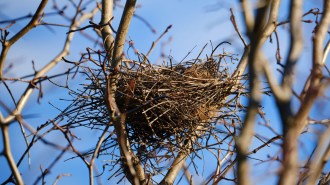 Physics
PhysicsExperiments hint at why bird nests are so sturdy
A bird’s nest is a special version of a granular material. Lab experiments and computer simulations explain its quirky behavior.
-
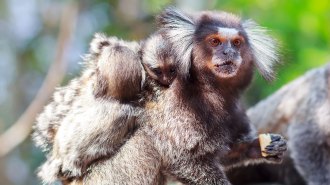 Animals
AnimalsBaby marmosets may practice their first distinctive cries in the womb
Ultrasounds tracking fetal mouth movements in baby marmosets pinpoint the early development of the motor skills needed for vocalization.
By Anna Gibbs -
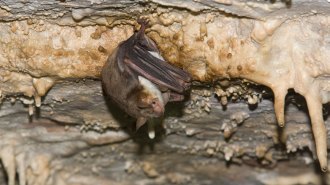 Life
LifeThese bats buzz like wasps and bees. The sound may deter hungry owls
Researchers have identified what may be the first known case of a mammal mimicking an insect.
By Jake Buehler -
 Agriculture
AgricultureOat and soy milks are planet friendly, but not as nutritious as cow milk
Plant-based milks are better for the environment, but nutrition-wise they fall behind cow milk.
By Nikk Ogasa -
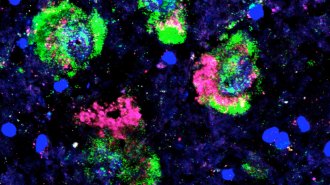 Neuroscience
NeuroscienceA very specific kind of brain cell dies off in people with Parkinson’s
Of out 10 kinds of dopamine-making nerve cells, only one type is extra vulnerable in Parkinson’s disease.
-
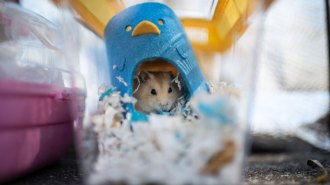 Animals
AnimalsSome hamsters are extremely susceptible to COVID-19
Golden Syrian hamsters used in research and popular as pets can become infected with SARS-CoV-2 with very low doses of the virus, a new study suggests.
-
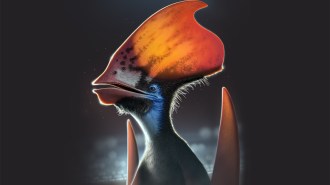 Paleontology
PaleontologyPterosaurs may have had brightly colored feathers on their heads
The fossil skull of a flying reptile hints that feathers originated about 100 million years earlier than scientists thought.